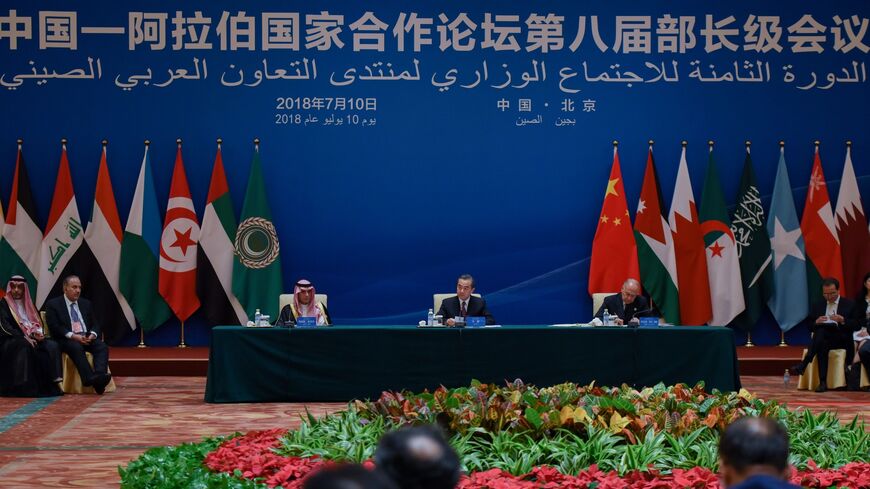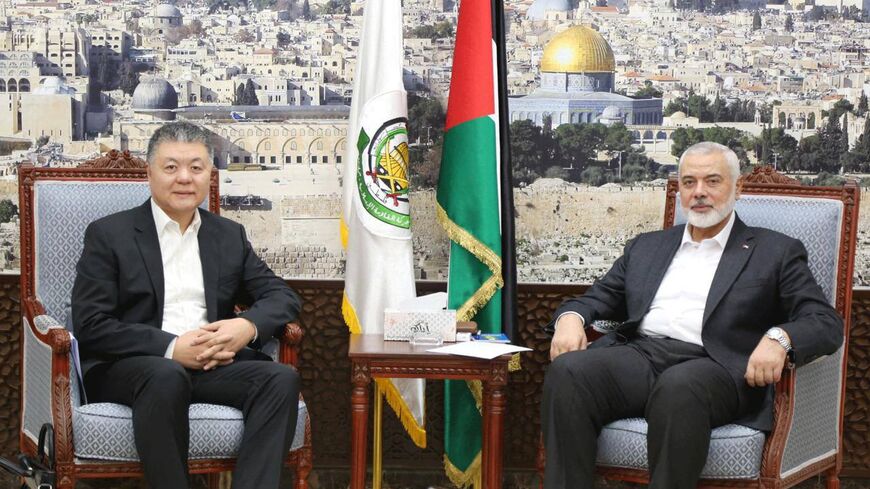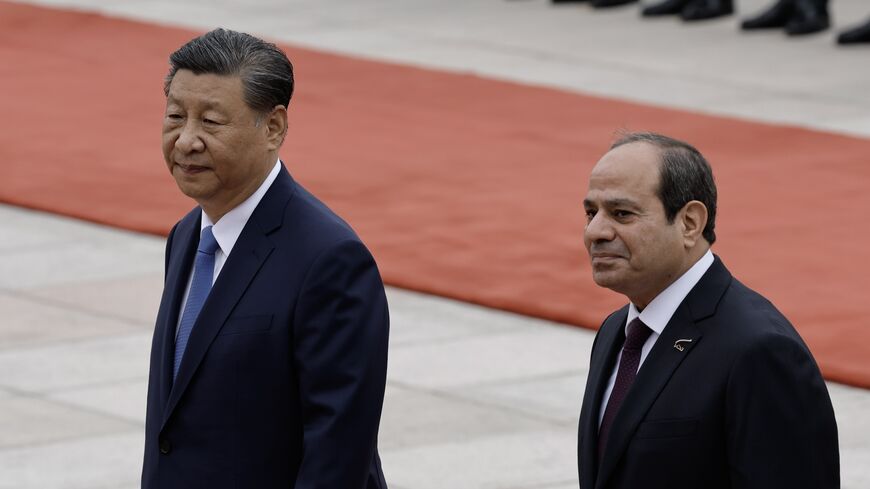China's largest Arab summit wraps with 'Beijing declaration': What we know
The meeting in Beijing in the presence of Arab leaders comes as the war in Gaza rages on, while China seeks a wider role in the region.

Participants at a Chinese-Arab summit held in Beijing concluded on Thursday issued a joint statement on the Palestinian issue at the end of the meeting, expressing their deep concerns over the ongoing war in the Gaza Strip.
The 10th ministerial meeting of the China-Arab States Cooperation Forum’s statement further stressed the need to reach a cease-fire in Gaza and guarantee the uninterrupted flow of humanitarian aid into the enclave. It also reiterated China’s and the Arab countries’ rejection of the forced displacement of Palestinians, while calling for resolving the Palestinian issue based on the two-state solution.
The China-Arab States Cooperation Forum was established in January 2004 during then-Chinese President Hu Jintao’s visit to Cairo, with the aim to strengthen ties and cooperation between China and Arab nations. The forum held its first meeting at the Arab League headquarters in Cairo in September 2004.
Thursday’s ministerial meeting in Beijing was co-chaired by China’s Foreign Minister Wang Yi and his Mauritanian counterpart Mohamed Salem Ould Merzouk. Officials from 22 Arab states attended the meeting, according to the Chinese Foreign Ministry. These include Egyptian President Abdel Fattah al-Sisi, along with Bahrain's King Hamad bin Isa Al Khalifa, Tunisian President Kais Saied and United Arab Emirates President Sheikh Mohamed bin Zayed Al Nahyan.
The foreign ministers of Saudi Arabia, Yemen, Sudan, Syria, Iraq, Algeria as well as Morocco attended the forum.
Qatar's Minister of State at the Foreign Ministry Mohammed bin Abdulaziz Al-Khulaifi, and Prime Minister of Libya’s Tripoli-based government Abdul Hamid Mohammed Dbeibah also took part.
Secretary-General of the Ministry of Foreign Affairs Hani Shmeitli represented Lebanon at the forum.
Among the attendees was also Arab League Secretary-General Ahmed Abu el-Gheit.
The forum also adopted two documents — the Beijing Declaration and the Action Implementation Plan — the Chinese Foreign Ministry said in a statement.
The Beijing Declaration reviewed ways to promote the building of a China-Arab community and boost bilateral cooperation between the two sides. It also stressed the common positions between China and the Arab countries to resolve regional crises and address counterterrorism efforts, human rights issues, climate change as well as artificial intelligence.
The Action Implementation Plan laid out a framework for boosting Chinese-Arab ties and cooperation in various fields, including in economy, politics, infrastructure and aviation, over the next two years.
During his opening speech at the meeting on Thursday, Chinese President Xi Jinping reiterated his country’s commitment to strengthen its relations with Arab states as “a model for maintaining world peace and stability.”
“We will … strive together for solutions to hotspot issues that uphold fairness and justice and sustain peace and security,” he said.
On the Israeli-Palestinian conflict, the Chinese leader expressed his support for Palestine's full membership in the United Nations and called for an “effective” international peace conference to resolve the conflict.
“Since last October, the Palestine-Israel conflict has escalated drastically, throwing the people into tremendous sufferings. War should not continue indefinitely,” he continued, while stressing China's support for the establishment of an independent Palestinian state on the 1967 borders with east Jerusalem as its capital.
Xi also announced that China will provide 500 million yuan ($69 million) in humanitarian aid for Gaza. He also pledged to donate $3 million to the UN Relief and Works Agency.
More than 36,000 Palestinians have been killed since Israel launched its air and ground campaign on the Gaza Strip on Oct. 7, in response to Hamas’ cross-border assault, during which militants killed nearly 1,200 people and took 240 others hostage.
Meanwhile, the humanitarian situation has quickly deteriorated in the besieged enclave, as aid deliveries have been hindered by the ongoing fighting and the repeated closures of the border crossings.
Since the onset of the Gaza war, China has called for a cease-fire and expressed support for the establishment of an independent Palestinian state based on the two-state solution. It has also condemned acts of violence against civilians, but stopped short of condemning Hamas’ assault on southern Israel.








